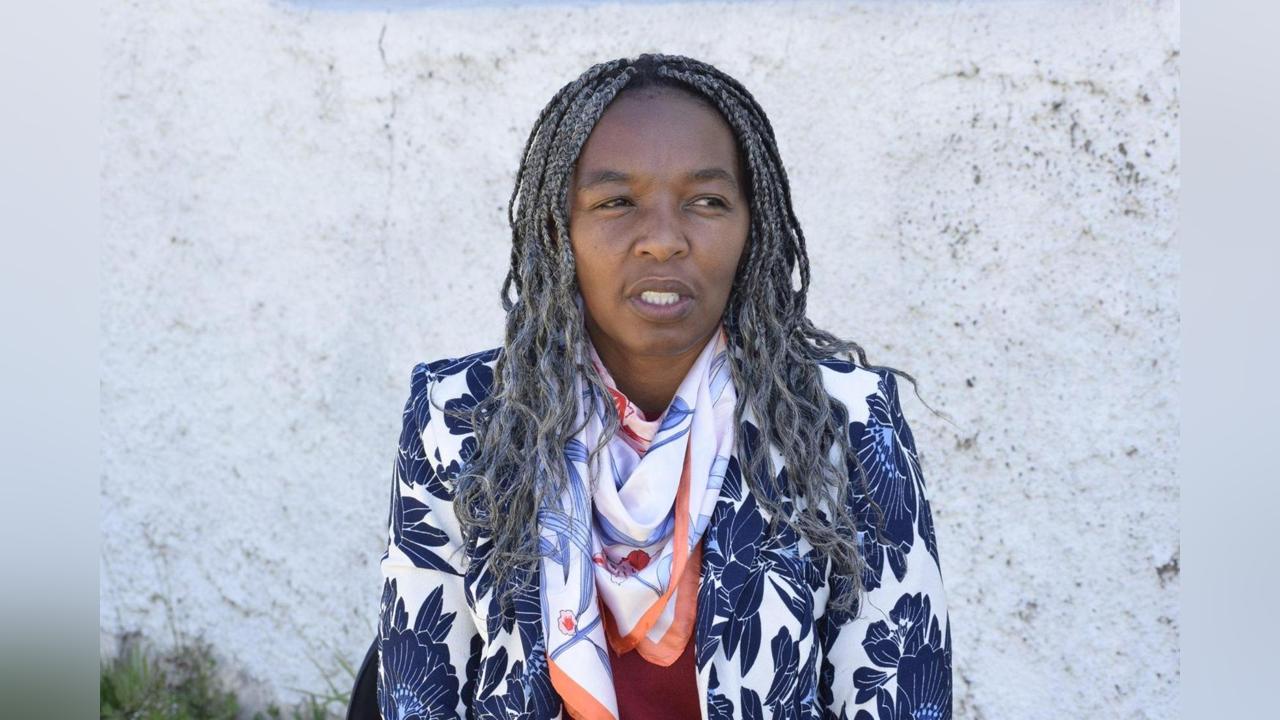Africa-Press – Lesotho. WHEN ’Maretšepile Kopo fell from an ox-pulled cart carrying water drums as a teenager, she was given goat’s milk and soon she was back to good health.
Thereafter, her nickname became ’Malipoli (Mother of Goats). “I am not Kopo because I am a dairy goat farmer,” she explains. “I am Kopo because my love for dairy goats and goats’ milk is deep. The accident inspired me to venture into dairy goat farming,” she said.
An award winning farmer from Naleli, north-east of Maseru city, Kopo said she was part of a group under the Topela Farmers’ Cooperative Society that travelled to Northern Cape, Strydenburg, to buy dairy goats in 2019.
“I bought Saanen and British alpine goats only,” said Kopo. Topela was founded in 2019 by 15 members with the aim of breeding from their backyards.
Every member is expected to give out two baby goats (potsanyane) to the cooperative for mass production. “But that doesn’t stop a member from doing what they want with their backyard farming.
Some do cheese, soap or lotion production. ” In 2020, Kopo’s goats gave birth. “One gave birth to ‘twins’ (male goats) and another to a female goat. That’s when I started advertising on Facebook and advocating for goat milk for its health benefits,” said Kopo.
“Some people already knew about it even though they imported it from South Africa and were interested.
The reception is very good,” Kopo said. She added: “Rearing dairy goats is my passion so I go to great lengths to challenge myself. I learn and I am willing to be taught.
” She invested M25 000 as capital for shelter, two goats (each costs M7 000), food and medication.
Now she has three ewes of different breeds, Saanen, British alpine and Toggenburg and one male and a kid. Just this year, she lost three ewes due to medical reasons and one of them was misdiagnosed.
“We need to prevent disease more than relying on curing animals,” she said, adding that medical attention has been “stressful” for her as a farmer for the past three years that she has been farming.
She sells bottled milk from 500ml to 2litres, while still working on standardisation. She said apart from health benefits, goat milk is good for child development and to improve digestive systems as it doesn’t contain too much fat.
“It is also good for the skin either in soap or lotion. It has lots of benefits,” she said. She said the Saanem breed produces “a lot” of milk with low fat content while the British breed produces medium fat milk.
Kopo said she retired as a teacher at one of the English medium schools in December 2019 to venture into micro-financing and off-sales but she is no longer active in that field for some “personal” reasons.
She teaches at an Early Childhood Development Centre and when she is not at school, she looks after her animals. “Teaching is my part-time job and my love for children is transferring to goats.
I really wish this industry could grow bigger. Now that I have realised information about the importance of a goat is available in many ministries but is not disseminated, I am more passionate about training more Basotho,” she said.
Although she is still trying to establish herself as a farmer and a breeder of dairy goats, the interest she has seen from Basotho is part of her key driving force.
“Goat milk is gradually gaining momentum and recognition in Lesotho,” she said. Kopo won the Farmers Pitso award in August, and gained recognition from big companies such as FNB Lesotho.
“But my biggest achievement is being able to do what I love and to serve Basotho,” she said.
Growing up surrounded by farmers from her immediate family and relatives, Kopo said she always envisioned herself as a farmer even though she wasn’t sure of the exact venture she would go into.
“But I always wanted to do something.
During our school holidays we used to go to the fields,” she said, recalling that at some point she paid to attend a workshop on pig rearing “but I wasn’t feeling it”.
Any enterprise has challenges and goat rearing isn’t an exception. She says some customers use the milk as though it is medicine only when they are in pain.
“It shouldn’t be like that,” she said. Supplies of goats can be a problem.
“We still need to visit a farm which is far and this means other requirements. A lot of procedures and costs are involved. These include taxes and the cost of a state veterinarian.
We need subsidies…currently subsidies for dairy goat farmers don’t exist in the country,” she said. She said even if they could take an officer from the ministry along with them, farmers would still have to sponsor or cover all the officer’s costs for that trip.
She said finding breeders locally is becoming difficult because many have gone out of business or have retired. “Now, it’s difficult to find these goats.
It is my desire to be a breeder,” she said. Kopo said people need to be trained to plug the resultant gaps. “I would love to be a breeder because importing goats is expensive.
If we had people who are able to get semen which would be cheaper then maybe we would be able to buy a lot. ” She said goat farming involves a lot of requirements, including grazing land.
“I think it’s high time the government identifies areas that could be leased long-term as farms and develop them so that we move from backyard farming to mass production.
As a teacher, she said she has seen children struggling academically, and proposes that more attention be given to practical subjects such as agriculture.
“Such children need to focus on other areas. I would love to train such learners at my farm.
They can eventually make a living after they complete training. I think that can be helpful. ” Kopo said the curriculum already includes entrepreneurship, so farming has to be included.
“Already farmers exist and the funding to teach children and get them to learn practically from a farm isn’t much compared with other subjects that have a lot of requirements,” she said.
Her vision is to have a farm site producing cheese and butter, making pasteurised milk, raw milk and mafi in the next three years. “I want a variety so that people will have options to choose from.
” She also wants to train students in farming and introduce a feeding programme in pre-schools for children to get used to goat milk at an early age.
“A lot of parents love buying it but because it’s a foreign taste for children, it becomes a struggle. It’s as though it’s something new, yet it should be part of their diet,” said Kopo.
She hopes Lesotho can have local breeders and farmers in all districts and also develop strategies that can help farmers improve their work. “Not taking good care of dairy goats can lead to poor quality milk,” she said, adding that she also wants to produce dairy goat feeds to ease her job.
She plans to host a dairy goat farmers’ workshop in November and registration is ongoing. This follows her realisation that some people already have the required breeds but had little knowledge.
“As Basotho, we don’t like reading but we can listen so through this workshop, I believe I will positively impact people’s lives.
I want to make sure that they understand that it’s something doable. If they are able to manage pigs, they can also manage goats and reap financial benefits as well.
She said her programme is also intended to monitor people who are already in this industry.
“I will give them the necessary advice and assistance for their betterment.”
For More News And Analysis About Lesotho Follow Africa-Press






